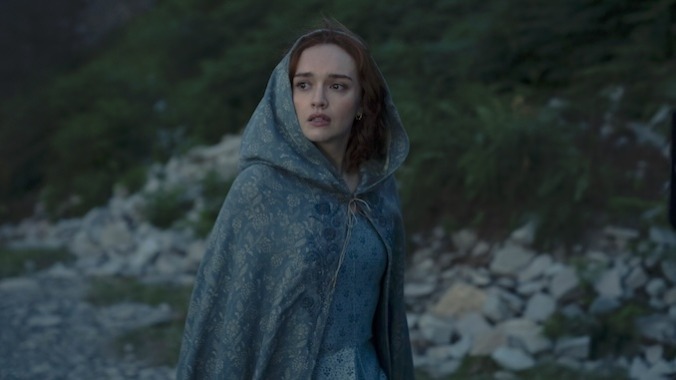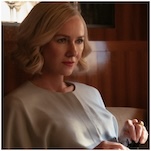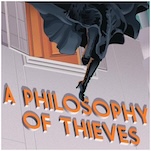House of the Dragon’s Season 2 Finale Introduces Alicent Hightower, the Queen Unchained
Photo Courtesy of HBO

Let them think what they must. I am at last myself, with no ambition greater than to walk where I please, to breathe the open air, to die unremarked, unnoticed, and be free.
Throughout House of the Dragon’s entire run, Alicent Hightower (Olivia Cooke) has arguably been the most layered and intriguing character on this complicated chess board. Strikingly different from the Daemon’s unabashed violence and cockiness (Matt Smith), Rhaenyra’s (Emma D’Arcy) charming ferocity, or even Otto’s (Rhys Ifans) cunning logic, Alicent has always been governed by a strong sense of duty alongside an undeniable survival instinct. During the series’ second season, she bemoaned her role in denying Rhaenyra her rightful place on the Iron Throne, found herself disillusioned with both her family and her closest conspirators, and ultimately decided to renounce it all in the finale’s most enlightening moment—removing herself from the chains of duty, all while making the ultimate sacrifice. Of course, it’s been a long journey for Alicent, one that culminates in a fateful 10-minute scene that ties together her series-long arc in Season 2’s finale, “The Queen Who Ever Was.”
In Episode 3 of Season 2, Alicent was confronted by Rhaenyra in the sept, where she was told that Viserys (Paddy Considine) wasn’t, in fact, talking about her Aegon (Tom Carney-Glynn) being “The Prince That Was Promised,” but instead was rambling about Aegon the Conqueror and the Song of Ice and Fire on his deathbed. From that moment on, the Alicent that we once knew (the one that followed her father’s orders; the one that continually questioned the legitimacy of Rhaenyra’s children; the one that stormed towards Rhaenyra with a knife), slowly but surely crumbled away. In the absence of her father, her husband, and the illusion of virtue, power, and order that she strove to maintain, Alicent slowly but surely has allowed herself to move on from the chilly, duty-bound queen she once was. Episode 7, in particular, marked her true rebirth, baptizing herself in the waters outside the walls of King’s Landing. The Alicent we see on that trip is stripped of her Hightower Greens, her queenly duties (courtesy of her son’s dismissal), and her political power, all ultimately leading to that pivotal moment in the finale: Alicent standing in Rhaenyra’s chambers on Dragonstone, offering the realm in exchange for her freedom.
-

-

-

-

-

-

-

-

-

-

-

-

-

-

-

-

-

-

-

-

-

-

-

-

-

-

-

-

-

-

-

-

-

-

-

-

-

-

-

-







































